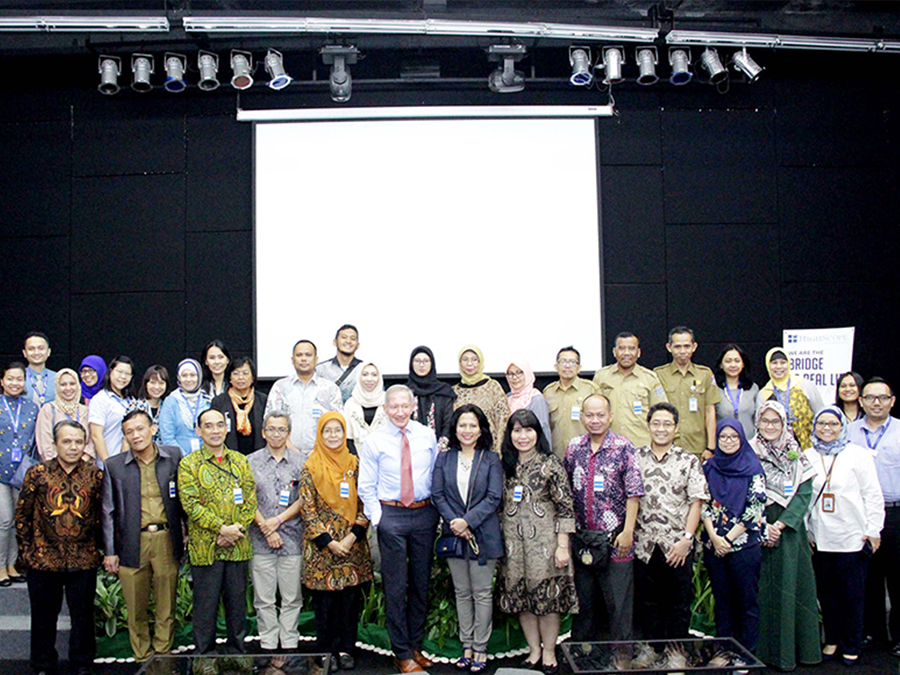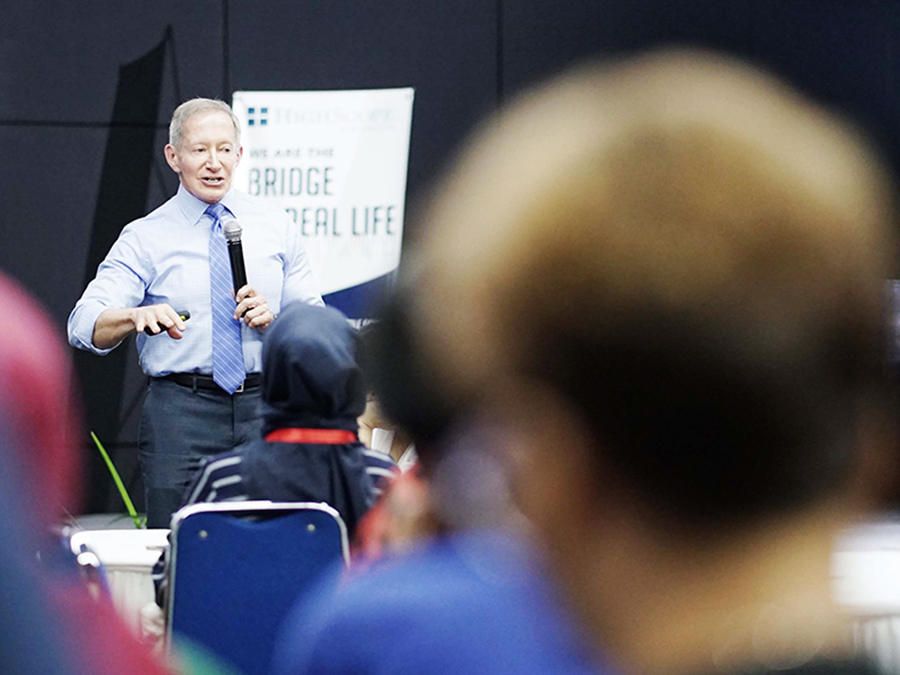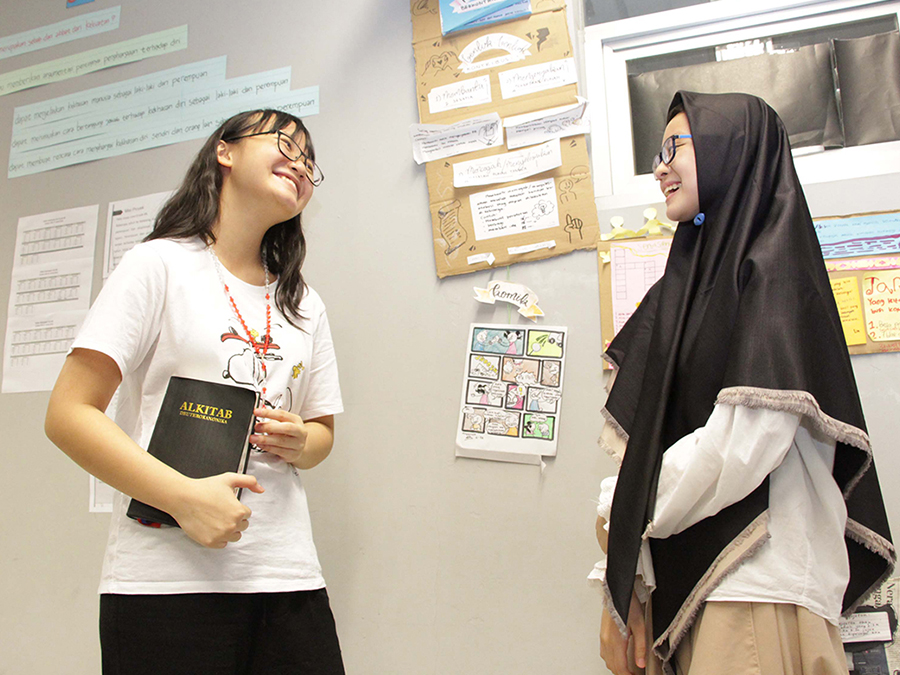 Highscope Help
Highscope Help
 Highscope Help
Highscope Help
Chat with our Network Representatives now:
As a way of showing concern and taking an active role in developing the education system in Indonesia, HighScope Indonesia held a training session entitled “Grading & Reporting Student Learning: Effective Policies & Practices”. This workshop discussed insights about assessment systems that were effective and in agreement with the objectives of national education. Discussions about education from various university lecturers and policy makers from the Ministry of Education and Culture participated in this collaboration.
HighScope Indonesia invited Thomas R. Guskey, Ph.D, an education expert in the field of assessment from the United States, to discuss in depth grading and reporting student learning: effective policies and practices. Guskey is Professor Emeritus at the University of Kentucky College of Education and Senior Research Scholar. He is the author / editor of 24 award-winning books and more than 250 chapters of books, articles and professional papers on educational measurement, evaluation, assessment, grading, and professional learning. He is a student of Benjamin S. Bloom, the originator Bloom’s Taxonomy and was an advisor to the US Department of Education under the government President Obama.
National Education Goals
National education goals, based on Law No. 20 of 2003 concerning the National Education System, are to develop the Indonesian people and illuminate the life of the nation. We know to what extent that aim is achieved through assessment. The government arranges assessment in the regulations of the minister of education and culture, no 23 year 2016 regarding the Assessment Standard. Through the declaration of national education goals and the issuance of regulations concerning Assessment standards, the government of Indonesia emphasizes that assessment is part of the learning process and not a separate thing.
Assessment and Reporting System
Related to the assessment system that supports the teaching and learning process, Guskey shared the idea that student assessment is not only based on memorization but must be done thoroughly, in the sense that it is balanced, authentic (true), uses multiple evidence (various proofs of learning), and is based on the rubric that contains the criteria for achieving learning targets. Examples of proof of learning are students that make models of proposed transportation routes to solve congestion problems; students present the proposed model to the city planning office as institutions that are experts in their fields. Students also make papers that provide solutions for these problems. With proof of multidimensional learning like this, the teacher can assess students' ability to solve problems in real life.
In the May 21, 2019 workshop, Guskey shared many facts about research-based best practices in making assessment policy and assessment of education, and strengthening teacher's understanding of professional judgment & inter-rater reliability, and also provide education about common perceptions of academic ability. He explained why the learning and assessment process must be integrated, and not separate and why the learning process will not succeed without the correct assessment process.


